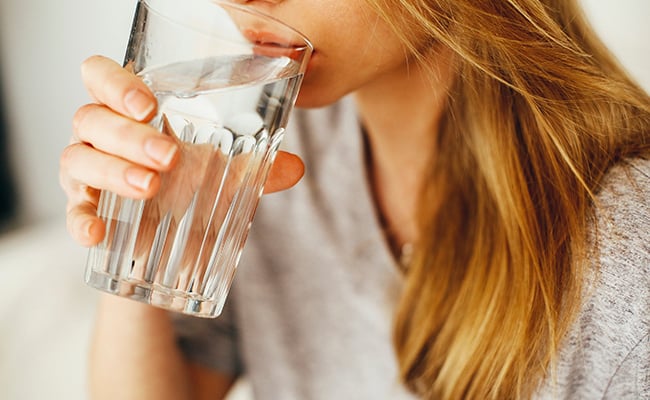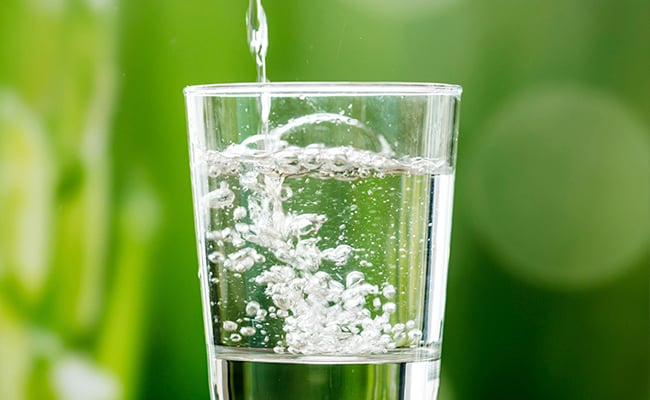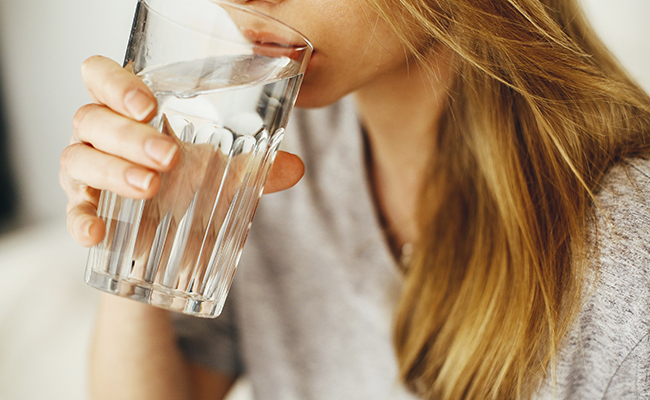
When worrying about skin conditions like eczema, just about the last thing on your mind may be the hardness of water - yet studies have shown that hard water – which contains a number of hard minerals (including magnesium and calcium) – can have a big effect on the health of your skin. For the general population, hard water may be a source of calcium and magnesium in the diet, but for those with eczema, it is best avoided when bathing and showering. Because researchers have recently discovered that eczema is related to immune problems, those battling this condition should also consider boosting their immunity through vitamin infusions.
How does Hard Water Affect Eczema?
Because hard water is so rich in ‘hard minerals’, it has a drying effect on skin. Its composition makes it more difficult to rub out soap and other cleansing products from skin. This is bad news for people with eczema, since they already have dry skin. The minerals in hard water remain on skin even after you have left the bath or shower, absorbing the skin’s natural oils, Skin can therefore crack and break out in eczema or psoriasis rashes.
How can People with Eczema Avoid Hard Water?
The first step for people with eczema is to purchase a water test, which will let them know the exact hardness of the water in their home. Water hardness is measured in milligrams per liter, or parts per million. Hard water is considered such if it contains between 121 and 180 mg/liter. It is considered ‘very hard’ if it has more than 180mg/l of minerals.

You can also use a simple soap suds test which involves filling a special bottle up to a line measuring around 12 ounces, adding a drop of soap, shaking it, and counting the suds. The more foamy the water gets, the harder it is. This test is no comparison to a dedicated kit, so if you have eczema, play on the safe side and purchase one. If your water quality is hard, a filter that clears water of minerals and other hard materials such as silt, rust, and dirt, is key. With conditions like psoriasis and eczema, the use of pure, gentle water is key, as it will enable your skin to retain its natural oils.
How can Vitamin Infusions Help Counter the Effects of Eczema?
As mentioned above, it was only this year that scientists have managed to find the link between a compromised immune system and eczema. They found that immune systems that are ‘skewed towards allergy’ alter lipids in the skin. These altered lipids allow skin to crack, thus losing moisture and allowing irritants to enter the skin. A vitamin infusion provides your body with high-impact nutrients, fights free radicals, and has another benefit for eczema - it helps you weather stress more optimally.

As noted by the American Academy of Dermatology, stress takes its toll on people physically and psychologically, but it also trigger skin problems such as acne and eczema. One study entitled Psychological Stress Perturbs Epidermal Permeability Barrier Homeostasis found that stress negatively affects the skin’s barrier function, resulting in the loss of moisture that is so detrimental to those with eczema.
To keep eczema in check, invest in a good water softener or purifier at home. Consider vitamin infusions as well, since they can help reduce stress and help your immune system function optimally. Stress is a big trigger for eczema so make sure to actively battle it throughout the day, using meditation or breathing exercises to keep stress hormone levels down.








 By Liquivida®
By Liquivida®


